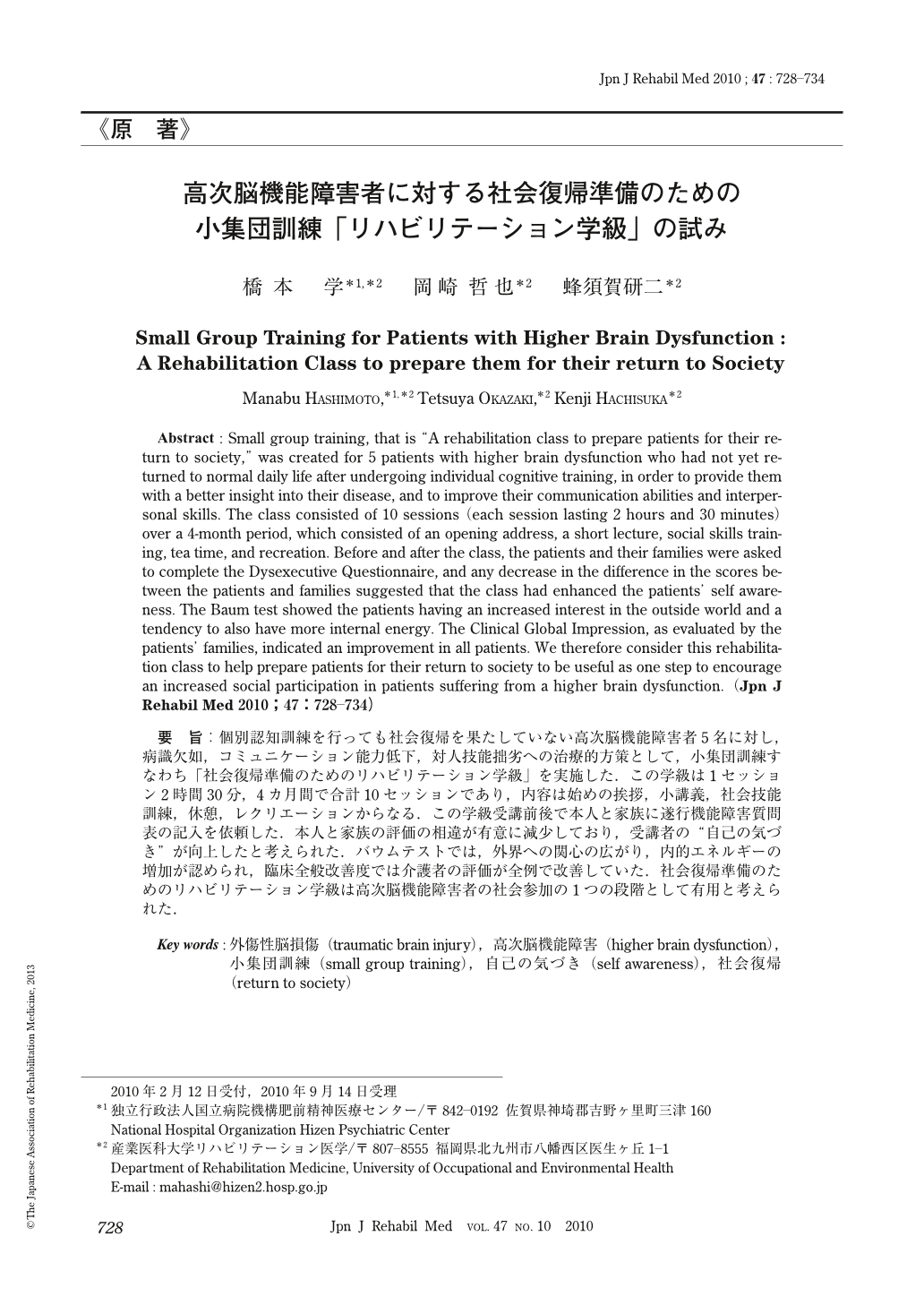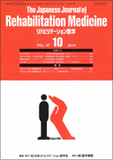Japanese
English
- 販売していません
- Abstract 文献概要
- 1ページ目 Look Inside
- 参考文献 Reference
- サイト内被引用 Cited by
要旨:個別認知訓練を行っても社会復帰を果たしていない高次脳機能障害者5名に対し,病識欠如,コミュニケーション能力低下,対人技能拙劣への治療的方策として,小集団訓練すなわち「社会復帰準備のためのリハビリテーション学級」を実施した.この学級は1セッション2時間30分,4カ月間で合計10セッションであり,内容は始めの挨拶,小講義,社会技能訓練,休憩,レクリエーションからなる.この学級受講前後で本人と家族に遂行機能障害質問表の記入を依頼した.本人と家族の評価の相違が有意に減少しており,受講者の“自己の気づき”が向上したと考えられた.バウムテストでは,外界への関心の広がり,内的エネルギーの増加が認められ,臨床全般改善度では介護者の評価が全例で改善していた.社会復帰準備のためのリハビリテーション学級は高次脳機能障害者の社会参加の1つの段階として有用と考えられた.
Abstract : Small group training, that is “A rehabilitation class to prepare patients for their return to society,” was created for 5 patients with higher brain dysfunction who had not yet returned to normal daily life after undergoing individual cognitive training, in order to provide them with a better insight into their disease, and to improve their communication abilities and interpersonal skills. The class consisted of 10 sessions (each session lasting 2 hours and 30 minutes) over a 4-month period, which consisted of an opening address, a short lecture, social skills training, tea time, and recreation. Before and after the class, the patients and their families were asked to complete the Dysexecutive Questionnaire, and any decrease in the difference in the scores between the patients and families suggested that the class had enhanced the patients' self awareness. The Baum test showed the patients having an increased interest in the outside world and a tendency to also have more internal energy. The Clinical Global Impression, as evaluated by the patients' families, indicated an improvement in all patients. We therefore consider this rehabilitation class to help prepare patients for their return to society to be useful as one step to encourage an increased social participation in patients suffering from a higher brain dysfunction.

Copyright © 2010, The Japanese Association of Rehabilitation Medicine. All rights reserved.


